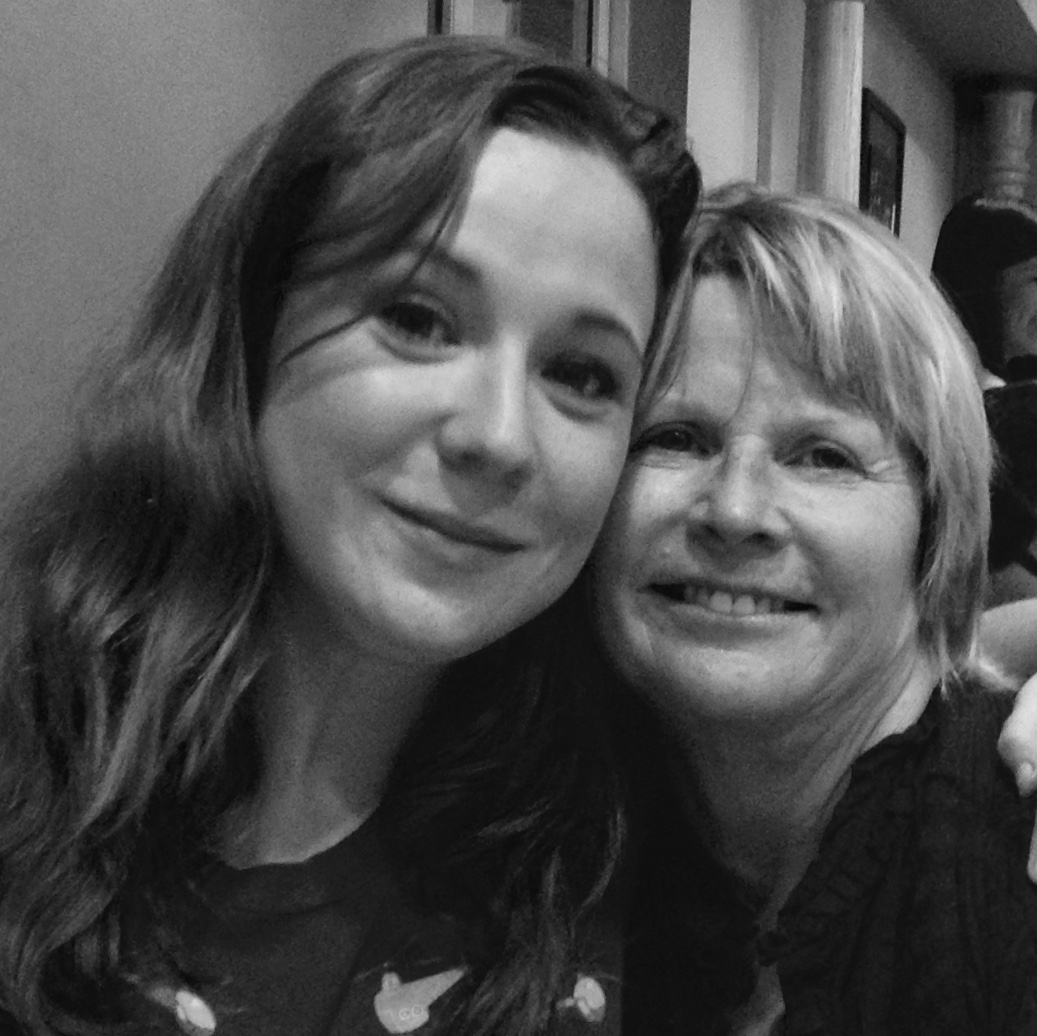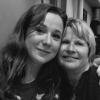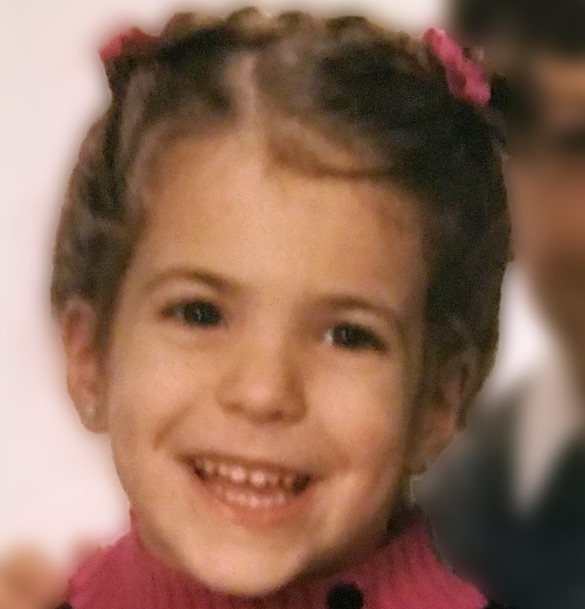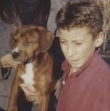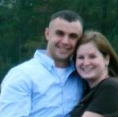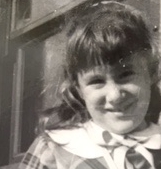I thought I knew what I was doing, or at least what I was asking for, when I registered for the genetic test. Six weeks ago I had attended the mandatory meeting with the counselor who’d explained the process and all the possible results. This gene, that gene, I wasn’t paying too much attention. She just went on and on about “The incredible advancements of medicine in the pre-diagnostics field.” Some part of me was still convinced that my new fear of dying was irrational or irrelevant, leftover from my Mom. I wasn’t sure. But I did know that it was the same week two years ago I spent the day curled into bed with my mother as she died.
We had already been through cancer once four years earlier. The chemo, the surgery, the stages. It was all fairly boring. Doctors didn’t seem too concerned unless they talked about the higher stages. The Threes and Fours got their attention. Ones and Twos were a yawn. Mom landed a solid two. This was San Francisco, the land of the Richter scale. A two was nothing. They just lopped things off, dumped folks full of chemo, and generally it seemed to work out. I got the feeling this was as commonplace as broken toes. My mom was supposed to grow her hair back and wear a pink t-shirt for a long walk with other women with bad hair and pink t-shirts and post a lot of positive sayings on her Facebook wall about being a survivor.
My mother said, Fuck that. She said, “Fuck pink. Fuck walks. Fuck wigs. Fuck it.” My mother wasn’t going to die, she was right here in the kitchen, complaining about losing her hair and smoking a cigarette over the stove. After chemo, which she never let us attend, she had a pink bumper sticker made that said, “Fuck Cancer,” and put it on her Jeep. She bombed around town, growing her hair back in patches and angrily smoking cigarettes out the driver’s side, with “Fuck Cancer” trailing behind her. I begged her to take off the bumper sticker, but she refused. “What about at work, do you want people to see that at work?” I implored. She was a nurse.
By the time the cancer was detected again, the cancer was advanced. Stage Four, a late Four. I was worried when the doctors were just as uninterested as when they had given us the Ones and Twos. Uninterested, but concerned this time. Breast cancer doesn’t kill you. It’s when the cancer metastasizes that you have a problem. If it makes it into the bones, that means it’s painful. If it makes it into the liver, that means the ship is going down. My mother had it in all three. During the six weeks from diagnosis to death, the doctors clicked their pens and left. We had missed the important window of medical interest and concern. I knew then and there, we had missed curable.
My mother had one round of chemo and landed in the hospital with an infection. Suddenly she was in a ward with very sick people, folks who didn’t look like they were doing well at all. “I never should have gone here in the first place,” she said, and told me to rub lotion into her butt where the bedsores were starting to bloom. “The bleach they use on these damn hospital sheets really dries out the skin,” she said.
“Yeah, but how are you right now?” I asked about the other thing.
“Find better lotion,” she said.
“I’ll get the best,” I said.
A nurse came in to take her temperature. My mom automatically opened her mouth and let the thermometer slip under her swollen tongue. It looked like a cigarette. “You always do,” she said, the thermometer bobbing in her mouth. “Nothing but the best.”
A week later she got pneumonia. “Opportunistic diseases,” the doctors said, uninterested but concerned. “That’s a terrible use of the word opportunistic,” I said. Within a day, my mom landed in the ICU on a respirator, held down by restraints. Every time she woke up from the medically induced coma meant to help her body heal, she tried to pull the tubes away. “Uncooperative,” the doctors said. They wrapped her wrists in Velcro restraints. “That’s a terrible use of the word uncooperative,” I said, standing over her.
I listened to the monitors beep and to the piss drip into the bag attached to her bed and to the whirring, mechanical cuffs squeeze her muscles to get the blood to her swollen feet. “Take off the restraints,” I said. “I’ll sit here and hold her hands when she wakes up and tell her what’s going on.”
The doctor went to say something, but I cut him off. “I don’t have anywhere else to be. Take off the goddamn restraints or I’ll do it myself.” The doctor clicked his pen and left. Moments later, the nurses came in to peel the restraints off her wrists.
The wild thing was that between doses of coma juice and morphine, Mom was up, and conscious, and talkative. She saw me, and my two brothers, and my little sister. She wanted ice chips and her phone. She wanted to check Facebook and text her friends. She wanted lotion and cigarettes. It gave us hope, a horrible hope, and then she would crash, and her body would go flat, and I’d sit bedside, rubbing Vaseline around the respirator tube so she wouldn’t be sore when she woke up again.
I knew it was desperate when I started bargaining. I sat in diners, where women who looked like my mother poured me watered-down coffee, and made deals with no one. Give us more time. Just let me get her out of the hospital. I started playing games in the dead of night, in the waiting rooms, in parking lot of the hospital. If I looked at the clock in exactly five minutes, she would make it until morning. If one of her favorite songs came on the radio, she’d make it another week. I looked to any impossible sign or meaning for the promise of improvement. Like the moment just before lottery numbers are called, better somehow felt entirely and ridiculously possible. It could happen. She could make it.
By the end of the week, doctors were draining her lungs with long, thick syringes. They did this twice before telling us she wouldn’t be able to fight off the pneumonia. They’d fill back up again, they said. Without continual draining of her lungs, my mother would never permanently be off a respirator again. The doctors didn’t want to keep telling her she was dying. She didn’t believe them. The machines pumped and dripped and breathed for her through each crash, and then got turned off when she awoke once more. So they told us that they wanted to drain her lungs once more, and once they did, we were to tell her this was it. This was the end of the line.
In the ICU waiting room in late October, my older brother and I conducted a fateful round of roshambo to determine who had to tell Mom she was going to die. My older brother lost and went in to tell her. He still won’t speak of it, but I gather she killed the messenger. Then my three siblings and I cycled into ICU for twenty minutes a piece to have our last moments with our conscious mother, allowed in one at a time.
I’m told we were lucky. People say stuff like that. Lucky because each of us got to say goodbye. But my mother was still alive, and furious, and arguing and cursing, convinced we were playing a prank, or worse, not playing one at all. We had to tell her again. The doctors were right. They don’t tell you how uncooperative death will be. So I told the nurses I didn’t give a damn what their rules were, all four of us kids were going to be in her ICU room with her, and they obliged.
The doctors left her like this: farting and shitting and coughing and swollen and yellow and breastless, lying in the hospital bed.
“How could I be dying right now? I’m right here,” she said.
“I don’t know, Mom,” I said.
“The doctors told me there are advancements all the time,” she said.
“And now they say we have to say goodbye. Right now,” my older brother said.
My younger brother and sister were scared and silent, with shoulders collapsed into themselves. The four of us said some prayers around her out of a need to say something, reciting the Hail Mary and the Our Father because we could all still remember the words. Finally, Mom got quiet, and told us she loved us. Then she shit the bed once more, and we all laughed out of morbid relief of something as banal as shit, and then the nurses told us we had to leave.
My brother drove us to a diner, the only thing around open that late. The doctor called me and told me they were moving her out of the ICU to free up the bed. My brothers and sister said they needed to rest but I couldn’t sleep. I went back to the hospital, to a different floor, to the room where people died. Mom sat upright and awake, watching TV in bed. Just like that.
A nurse buzzed around to make sure I put on a gown and gloves and a facemask because of the risk of catching her infections. But the risk of infection was far less risky than not touching my mother.
“I’m not putting anything on,” I said.
“But—” the nurse said.
“They said she’s dying today,” I said. “So that’s that.” I walked into her room and took off my jacket and held her hand without wearing anything that could protect me from her. Mom was alert but on a heavy morphine drip. I looked at her, all doped up and with yellow eyes. Any hair she had left kept rubbing off on the pillows. I collected it like dryer lint and dropped it in an empty paper cup next to her bed.
“Move your big ass over,” I said and climbed into the bed. I wheeled the morphine infusion pump towards me and turned it down halfway. She was full of the stuff, and drowsy.
“What are you doing pushing buttons over there?” she asked.
“Don’t worry about it,” I said.
I used a star shaped sponge at the end of a little stick to wet the corners of her dry, cracked mouth. We watched an episode of something stupid and fell asleep curled together, the pumps pumping. It was daylight savings that night, fall back, and a solar eclipse. I attached meaning to all of this. It could still be okay.
I woke up a few hours later. While we slept, a nurse had come in and returned the morphine to its top-shelf dose, putting in some security code in so I couldn’t change it. Mom’s speech started to slur, and her eyes closed, and her breathing slowed. I marched out to the nurses’ station and told them to turn the morphine down, but some lady in scrubs gently told me they were going to keep her comfortable.
My mother made it to the following afternoon. We were all there. I wiped her chin as she drifted off, and she began to sing. The nurses said that happened from the drugs. At one point I thought she had shit herself again and got up to go get help, but my little brother pulled me back. “That’s death,” he said. “That’s what death smells like.” My little sister kept giving her the star sponge dipped in water, which Mom, now unconscious, instinctively sucked on like a newborn.
When she really struggled to breath, and by really struggle I mean the “death rattle,” a nurse came in and put a few drops of a liquid under my mother’s tongue to paralyze her gag reflex. My mother died of cancer, but it was more like watching her drown. She was 57.
I arranged the funeral and wrote her obit. I kept her ashes on a kitchen chair and drove alone to the service with Mom belted into the passenger seat. I gave a speech surrounded by wreaths and ribbons that people said was touching. I knew she was going to die, but foresight changed nothing. The world was a scarier place without my mother in it.
For months afterwards, life was like fishing. Several times a day, she tugged on my line and startled me from a whole other conversation. I’d think of something to tell her, or see something she’d like, or wake in the morning thinking, “What a terrible dream.” I had the uneasy feeling she was angry. The words MomMomMomMom repeated like a mantra that ran day and night. I was broken, and death is noisy.
So two years later, sitting in the Cancer Center and listening to the infusion pumps dumping chemo into the bloodstreams of a dozen or so people in smallish rooms nearby, it suddenly occurred to me what I had done, and what was about to happen.
The genetic counselor led me into a private room, and let go a tiny little sigh, and said she gave “this kind of news” sitting next to a person instead of across from them. So I knew what the genetic test said before she said some words, and she pointed to a picture, and she squeezed my knee. I was there when they diagnosed my mother with cancer, and it was the same material. “Incredible advancements,” she said. Part of me still blamed my mother for her death. Part of me still blamed myself. We had all been so wrong. We had death in our genes.
“So I’m going to get breast cancer,” I said.
“You’re very likely to get it,” she said. “Although there’s no way to know for sure—“
“Who knows anything for sure?” I said. “They told me my mother was going to die one day, but she died the next day.”
The tears on my face surprised me.
“So I just take these off,” I gestured to my tits.
“So far insurance companies have determined people with this particular gene result should begin screening in their late thirties.”
“So I keep them,” I said.
“Correct.”
“Until I get breast cancer.”
“If you get breast cancer.”
I couldn’t argue anymore. I was done with it. “What do I do now?”
The counselor went on and on about preventative care. I sat very still on the plastic hospital couch. I could hear the steady beeping of chemo infusion pumps just on the other side of the wall. I knew those pumps well.
“Do you have any other questions?” she asked. The pumps whirred and dumped, whirred and dumped. I could hear my future before it arrived.
I didn’t have any more questions.
Brigid Hughes received her MFA in Writing from the University of San Francisco. She is a memoirist, essayist, and fiction writer whose work has appeared in The Rumpus, sPARKLE & bLINK, U, and the anthology Fifteen from 826 Valencia. She has completed a collection of stories and essays called Boiling the Frog and is currently at work on new narrative nonfiction. She is a third generation San Franciscan, but still gets lost in Golden Gate Park trying to find the buffalo.
